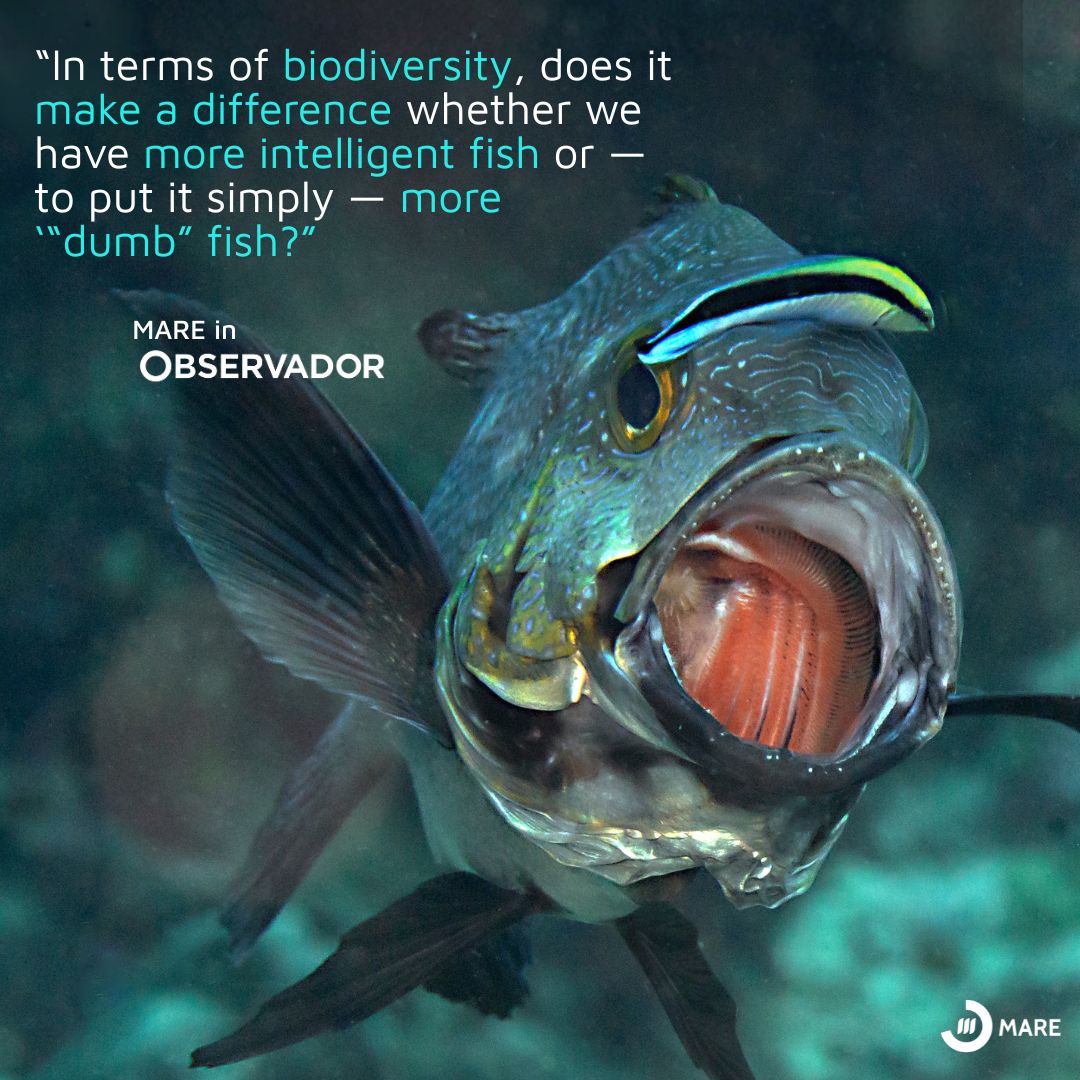Why does fish intelligence matter?
MARE researcher José Ricardo Paula was recently interviewed by the Observador newspaper about the importance of fish intelligence and the role it can play in the conservation of marine ecosystems. 
At the Guia Marine Laboratory in Cascais, the researcher leads the Behavioral Complexity group, which seeks to understand how the cognition and social behavior of fish, particularly cleaner fish (Labroides dimidiatus), influence the dynamics and stability of coral reefs. These small fish play an essential role in maintaining the health of ecosystems by removing parasites from other species in a mutually beneficial relationship.
“In terms of biodiversity, does it make a difference whether we have more intelligent fish or—to put it simply—more ‘dumb’ fish?” asks José Ricardo Paula.
MARE's research is exploring precisely this question: how habitat complexity and environmental changes can affect the cognitive ability of fish and, consequently, the ecological balance of reefs. The project, funded by the “la Caixa” Foundation, aims to understand whether the loss of cognitive abilities in fish populations, caused by rising temperatures and consequent coral bleaching, has a direct impact on marine biodiversity.
After episodes of massive bleaching on Australia's Great Barrier Reef, surviving cleaner fish showed significant losses in behavioral skills, including difficulty in dealing with multiple “clients” or recognizing predators. Despite the physical recovery of the reefs, previous behaviors did not return: evidence that cognitive impacts can persist even after ecosystem regeneration.
José Ricardo Paula's team is now studying this issue in natural reefs by creating experimental units in some reefs, where they will introduce fish with different cognitive performances to assess the effects on biodiversity. If it is confirmed that the presence of more “intelligent” individuals contributes to the health of ecosystems, this approach could open the door to new conservation strategies, focused not only on the preservation of species, but also on the “culture” and behaviors that sustain their ecological function.
In addition to the support of the “la Caixa” Foundation, José Ricardo Paula's work has been recognized by several entities, including the Foundation for Science and Technology (FCT) and the Luso-American Development Foundation (FLAD), through the Atlantic Science Award.
To read the full article, click HERE
Text by Patrícia Carvalho
